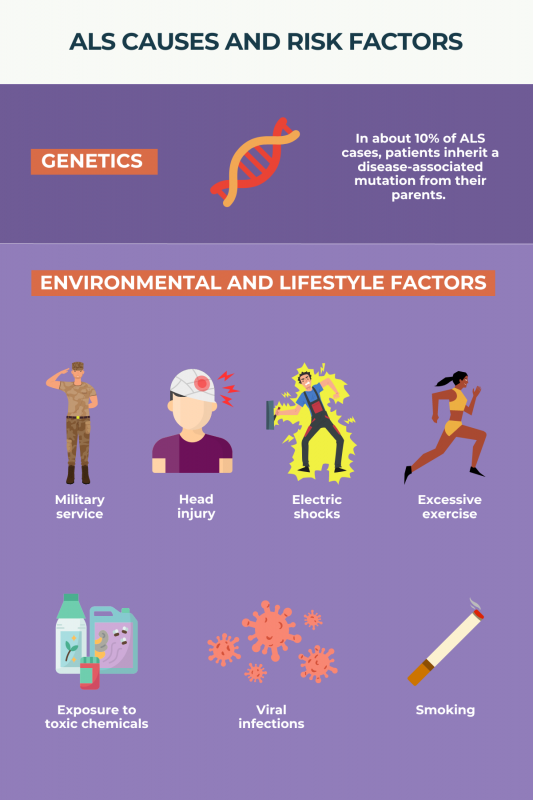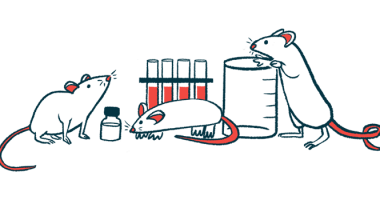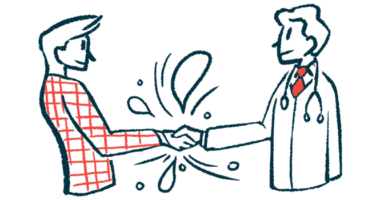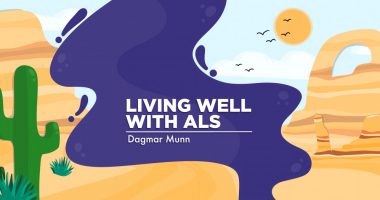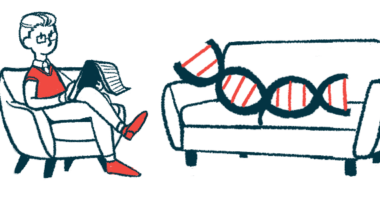FAQs about causes of ALS
Amyotrophic lateral sclerosis (ALS) is caused by the death of motor neurons, the specialized nerve cells that control muscle movement. It’s not clear exactly what triggers motor neuron death in ALS, but a number of factors, including genetics, environmental exposures, and lifestyle choices, are thought to contribute to the disease’s development.
Pain is not a common symptom of amyotrophic lateral sclerosis (ALS) itself; however, complications related to the disease can be painful. For example, weak muscles can put extra strain on joints, which can cause aches and pain, and difficulty moving can lead to abnormal pressure on the skin, resulting in sores or wounds. Muscle spasms and constipation are common among ALS patients and also can be painful.
Some genetic mutations have been linked with an increased risk of developing amyotrophic lateral sclerosis (ALS), and these mutations are present from the moment of conception. However, not everyone with a disease-associated mutation will develop ALS, so it’s impossible to definitively predict disease risk from genetics alone. ALS does not affect newborns, and it’s very rare for symptoms of the disease to manifest before adulthood.
Some lifestyle habits, such as smoking and excessive exercise, have been linked to an increased risk of developing amyotrophic lateral sclerosis (ALS). However, lifestyle choices alone are not sufficient to cause the disease — most people who smoke or exercise a lot will never develop ALS. Other factors including genetics and environmental exposures also affect an individual’s risk of developing ALS.
A person’s genetics can influence the risk of developing amyotrophic lateral sclerosis (ALS), and mutations in more than 30 genes have been linked with ALS. However, genetics alone are not usually enough to cause ALS — just because someone has a disease-associated mutation does not guarantee that the individual will develop ALS. An interaction between mutations and factors like lifestyle habits and environmental exposures are thought to influence the risk of ALS.
Related Articles

 Fact-checked by
Fact-checked by 